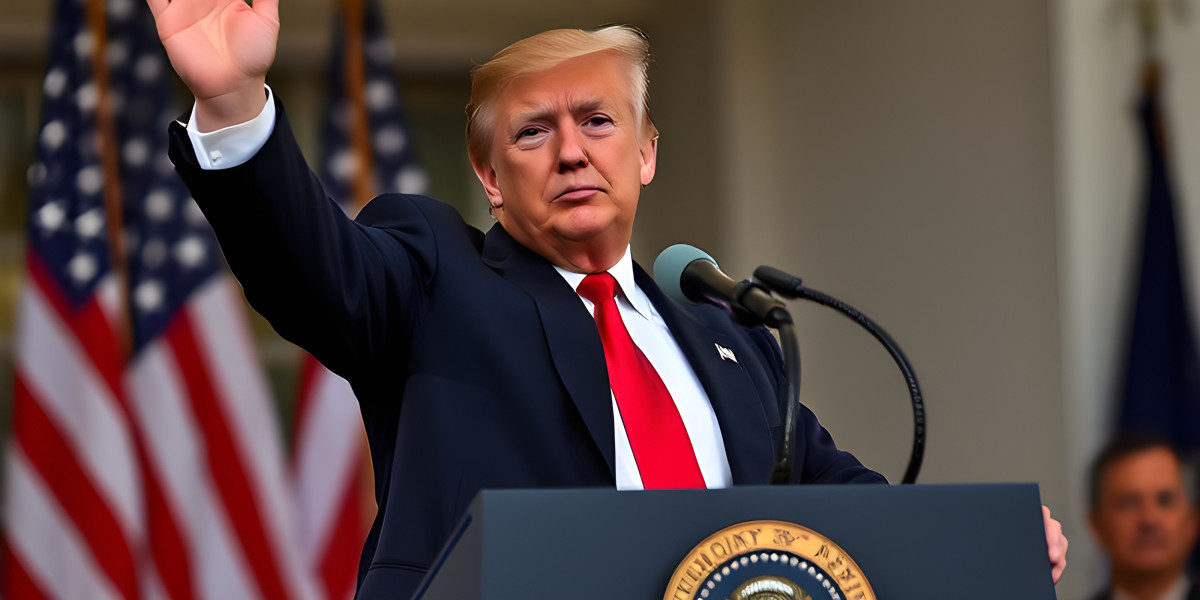The Trump Effect: Rethinking American Politics in a Post-Presidency Era
Introduction
Donald Trump’s presidency (2017-2021) was a whirlwind of controversy, policy shifts, and unprecedented engagement with the American electorate. Since leaving office, his influence continues to shape the course of the Republican Party and the broader political landscape in the United States.
I. The Rise of Trumpism: A Political Reckoning
The emergence of Donald Trump as a political force can be traced back to his unconventional approach to campaigning. Rather than adhering to traditional political rhetoric, Trump’s candidacy resonated with a base that felt alienated by the political elite. His slogan, “Make America Great Again,” capitalized on a sense of nostalgia and urgency among voters who believed that America was losing its status on the world stage.
The 2016 Election: Trump's victory was not just a rejection of Hillary Clinton; it was a revolt against established norms. Many voters were drawn to his brash style and promises to drain the swamp in Washington. The election signaled a fundamental shift in how political communication occurred, with social media becoming a primary tool for outreach.
Impact on the Republican Party: Trump’s influence has shifted the GOP's identity, leaning towards a more populist and nationalist agenda. Key issues during his presidency, such as immigration reform, trade renegotiations, and judicial appointments, have become central tenets of modern Republican ideology.
II. The Language of Politics: Rhetoric and Reality
Trump’s presidency introduced a new lexicon into the political discourse, which has had a profound impact on how Americans engage with news and information.
"Fake News" and Media Relations: Trump frequently labeled unfavorable news coverage as "fake news," undermining trust in mainstream media outlets. This tactic not only energized his base but also set a precedent for future political leaders to dismiss criticism as biased. According to a Pew Research study, the percentage of Americans who trust the media has significantly declined since Trump’s presidency began.
Misinformation and Its Consequences: The normalization of misinformation has created a polarized environment where facts are often secondary to beliefs. This trend contributes to a divided electorate, making bipartisan dialogue increasingly challenging. The rise of echo chambers on social media platforms amplifies this effect, perpetuating the cycle of misinformation.
III. The Polarization of American Society
Trump's presidency has exacerbated existing divides in American society, leading to heightened polarization across political, social, and cultural lines.
Social Movements and Backlash: Movements such as Black Lives Matter gained momentum during Trump's presidency, sparking nationwide protests in response to systemic racism and police brutality. However, Trump’s response often incited backlash, fostering a culture of division rather than unity.
Political Violence and Extremism: The events of January 6, 2021, showcased the potential for political violence in the wake of Trump's rhetoric. His claims of a stolen election incited a mob to storm the Capitol, leading to a historical impeachment and raising urgent questions about political accountability and the fragility of democracy.
IV. The Aftermath of Trump’s Presidency
As the dust settles from Trump’s presidency, the political landscape is shifting yet again, with implications for both the Republican Party and the nation as a whole.
2024 Presidential Election: Trump remains a formidable figure in the GOP, as evidenced by his continued popularity among Republican voters. Speculations about a 2024 run have stirred excitement and concern alike. His potential candidacy raises questions about the future direction of the party and whether it will continue to embrace Trumpism or pivot back towards traditional conservatism.
Legacy of Judicial Appointments: One of Trump’s most lasting legacies is his influence on the federal judiciary. Appointing three Supreme Court justices reshaped the ideological balance of the court, impacting critical issues such as reproductive rights, healthcare, and immigration policy. This shift will have ramifications for decades, influencing not only the Republican agenda but also the Democratic response.
V. The Future of American Politics
The impact of Trumpism extends beyond the Republican Party, challenging the core tenets of American democracy and governance.
Reinvigoration of the Democratic Party: In response to Trump’s presidency, Democrats have sought to strengthen their platform by addressing issues such as economic inequality, climate change, and healthcare reform. The party has focused on building a coalition that appeals to diverse demographics, aiming to counteract the polarization exacerbated by Trump.
The Role of Grassroots Movements: The political climate has fostered an environment ripe for grassroots movements, as citizens engage more actively in political discussions and advocacy. Organizations like Indivisible and MoveOn.org have mobilized to challenge Trump's policies and promote progressive candidates, emphasizing the importance of civic engagement in a democracy.
Conclusion
Donald Trump’s presidency has left an indelible mark on American politics, reshaping the landscape in ways that will continue to unfold in the coming years. As the nation grapples with the legacy of Trumpism, it faces critical choices about the direction of its political discourse, the integrity of its institutions, and the fundamental values that unite its diverse populace. The upcoming 2024 election will serve as a crucial moment of reckoning, determining whether Trump’s influence will continue to dominate the Republican Party or if a new narrative will emerge to bridge the divides that have deepened in recent years.
In this evolving political landscape, it is essential for citizens to engage thoughtfully, seeking out credible information and fostering dialogue across differences. The future of American democracy hinges on the ability to navigate the complexities of a polarized society while holding steadfast to the principles of fairness, justice, and unity.








